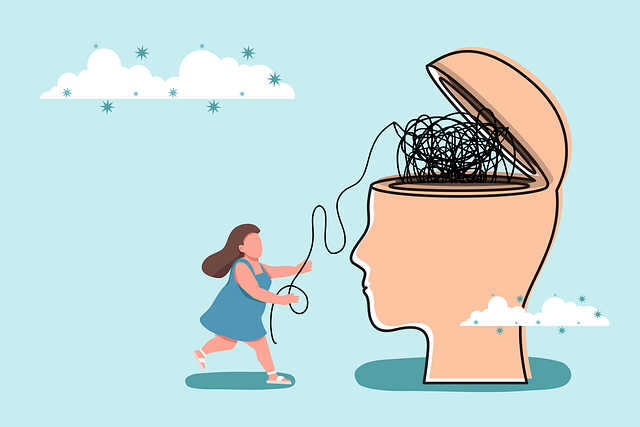Creating a podcast focused on children's mental wellness should include topics like Exposure and Response Prevention (ERP) therapy, backed by evidence in treating anxiety and phobias. Inviting experts in trauma, behavioral therapies, and emotional intelligence ensures diverse perspectives. The series aims to empower kids with coping skills, reduce stigma, and foster an inclusive community. Targeting parents and caregivers, the podcast offers guidance on ERP therapy and compassion cultivation practices for emotional healing, promoting a nurturing environment for emotional growth and resilience.
“Unleashing the Power of Mental Wellness Podcasts: A Comprehensive Guide to Nurturing Young Minds. In today’s fast-paced world, children’s mental health is a paramount concern. This article navigates the process of creating an engaging podcast series focused on exposure and response prevention (ERP) therapy for kids. From choosing relevant topics like anxiety management to structuring episodes with real-life scenarios, we explore strategies to captivate parents and caregivers. Learn how storytelling, immersive sounds, and marketing collaborations can enhance your podcast’s impact, making it a valuable resource for mental wellness.”
- Choosing Topics and Guest Experts for Children's Mental Wellness
- – Identifying key areas of focus in child mental health
- – Sourcing qualified professionals with expertise in specific issues
- – Understanding audience needs and common concerns from parents/caregivers
Choosing Topics and Guest Experts for Children's Mental Wellness

When crafting a podcast series focused on children’s mental wellness, selecting relevant and engaging topics is key. Episodes should cover a range of issues that resonate with young listeners while also providing valuable insights for parents, caregivers, and educators. Incorporating evidence-based practices like Exposure and Response Prevention (ERP) therapy can be a game-changer, offering practical tools to help children manage anxiety and phobias effectively.
Guest experts play a vital role in enhancing the podcast’s impact. Inviting mental health professionals specializing in childhood trauma, behavioral therapies, and emotional intelligence can bring diverse perspectives. These experts can share their knowledge on risk assessment for mental health professionals, ensuring safe and supportive environments for vulnerable youth. Moreover, discussing strategies to boost confidence and address mental illness stigma reduction efforts will empower children and foster a more inclusive community.
– Identifying key areas of focus in child mental health

In the realm of mental wellness, addressing child mental health is paramount, as it forms the foundation for their overall well-being and future success. Key areas of focus include identifying and managing anxiety disorders, a prevalent concern among children. Therapy for Children, such as Exposure and Response Prevention (ERP), has proven effective in treating specific phobias and anxiety-related conditions. This approach helps young individuals gradually face their fears, thereby reducing avoidance behaviours and promoting coping skills development.
Additionally, incorporating Stress Reduction Methods and Mind Over Matter Principles can empower children to navigate life’s challenges. These strategies teach them valuable coping skills, enabling them to manage stress, regulate emotions, and foster resilience. By addressing these aspects holistically, we not only support children’s mental health but also equip them with lifelong tools for thriving in a complex world.
– Sourcing qualified professionals with expertise in specific issues

To create a compelling mental wellness podcast series, carefully curating a roster of qualified professionals is paramount. When focusing on niche topics like therapy for children or exposure and response prevention (ERP), it’s crucial to source experts who not only possess extensive knowledge but also effective communication skills tailored for an audio medium. This may involve reaching out to therapists specializing in pediatric mental health, ERP practitioners, and researchers familiar with these specific interventions.
Ensuring diverse perspectives enriches the podcast’s content. Incorporating Burnout Prevention Strategies for Healthcare Providers, Mind Over Matter Principles, and Empathy Building Strategies—especially when discussing child therapy—can offer listeners a well-rounded understanding of mental wellness. Such an approach not only caters to a broader audience but also provides valuable insights into managing and mitigating common issues faced by both professionals and their young clients.
– Understanding audience needs and common concerns from parents/caregivers

In producing a mental wellness podcast series focused on children’s emotional well-being, understanding the audience—specifically parents and caregivers—is key. This demographic often grapples with concerns surrounding their child’s mental health, behavior, and overall happiness. Many seek guidance on effective therapy methods that can help young ones navigate challenging emotions and traumatic experiences. Exposure and Response Prevention (ERP) therapy, a highly effective approach in treating anxiety disorders in children, deserves special attention. By presenting this evidence-based technique to parents, the podcast can empower them to support their child’s emotional healing processes, which may include learning conflict resolution techniques tailored for young minds.
Additionally, incorporating conversations about compassion cultivation practices can be valuable. These practices promote self-awareness and empathy, helping parents and caregivers better understand their children’s perspectives. In light of these considerations, the podcast series has the potential to offer practical insights into managing childhood mental health issues, ensuring that parents feel equipped to foster a nurturing environment conducive to emotional growth and resilience.
In producing a mental wellness podcast series for children, it’s essential to balance informed discussions with engaging storytelling. By focusing on key areas like Anxiety and Depression, as well as evidence-based therapies such as Exposure and Response Prevention (ERP), we can provide valuable insights while appealing to both young listeners and their parents/caregivers. Sourcing qualified professionals ensures accurate information, catering to a diverse audience with varied concerns. This approach not only educates but also empowers, fostering open conversations about children’s mental health.









